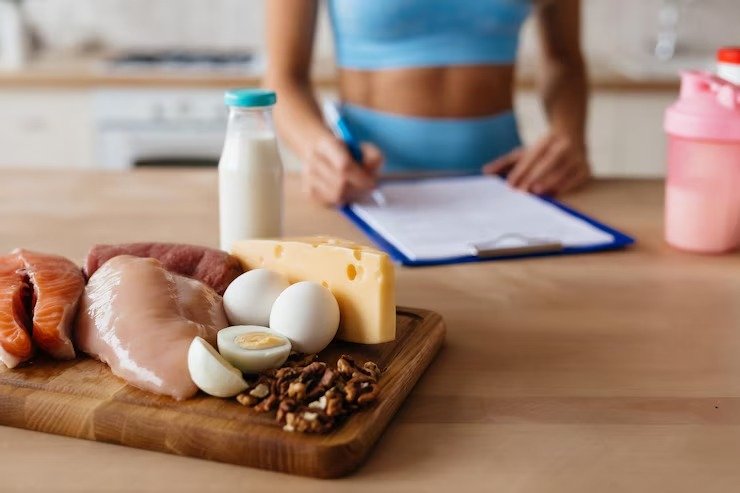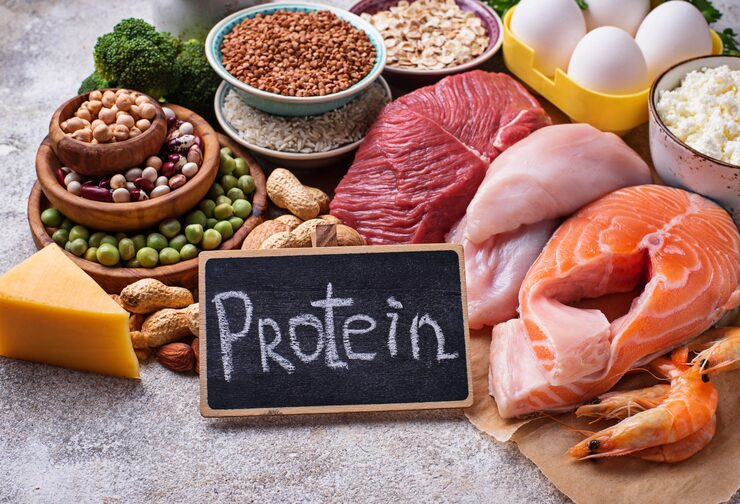A legacy of innovation, quality, and culinary experience.
Read our NewsletterProtein deficiency can silently impact your health. Discover the symptoms, causes, and effective dietary treatments, including how everyday foods like Pasta Ditalini Rigate and Creamy Peanut Butter can help you stay nourished.
Why protein matters more than you think? Protein is more than just a buzzword in fitness circles; it's a fundamental building block of life. Every cell in your body contains protein. From your muscles and bones to your hormones and immune system, protein helps keep everything functioning as it should.
Despite its importance, protein deficiency is more common than many people realize. It's often a result of poor dietary habits, medical issues, or a lack of nutritional awareness. And the symptoms? Subtle at first, but increasingly disruptive if left unaddressed.
Let’s dive deep into what happens when your body runs low on protein and how you can fix it.

The body is remarkably good at signaling when something is wrong. Here are the most common red flags of protein deficiency:
Muscles are made of protein. If you're not eating enough, your body starts breaking down muscle tissue to get what it needs. You may notice that your strength decreases or your muscles appear smaller over time.
Protein helps maintain proper fluid balance in the body. Without enough of it, fluid can leak into surrounding tissues, leading to swelling—often in the legs, ankles, or feet.
Protein is essential for keratin production. A lack of protein may lead to hair thinning, brittle nails, and dull, flaky skin.
Low protein levels weaken your immune system. If you find yourself catching colds or other infections more often than usual, your diet might be to blame.
Protein is vital for cellular repair. Without it, wounds take longer to heal, and you may feel constantly drained, both physically and mentally.
Protein affects neurotransmitters like dopamine and serotonin. A deficiency can disrupt brain function, leading to mood changes, depression, or trouble concentrating.
You might assume you're eating enough protein, but that’s not always the case. Several underlying factors can contribute to a deficiency:
Modern diets often focus on convenience over nutrition. Meals rich in refined carbohydrates, such as white rice or white bread, often lack protein. Even a dish of Pasta Ditalini Rigate, while comforting, may offer little protein on its own unless it's paired with legumes, cheese, or meat.
Plant-based diets can absolutely meet protein needs—but only if planned well. Without combining different protein sources (like beans and grains), you may fall short.
Conditions like celiac disease, Crohn’s, or irritable bowel syndrome (IBS) can hinder the body’s ability to absorb nutrients, including protein.
As we age, we tend to lose muscle mass (sarcopenia), and our protein needs actually increase. Unfortunately, appetite may decrease, leading to underconsumption.
Athletes, bodybuilders, and those with physically demanding jobs need more protein. If you’re burning calories but not replenishing with the right nutrients, a deficiency may occur.

Fortunately, protein deficiency is treatable, often without medication. It begins with improving your daily eating habits and strategically incorporating protein-rich foods.
A protein-rich breakfast sets the tone for the day. Consider adding:
Eggs with a slice of whole-grain toast
A smoothie made with Greek yogurt, chia seeds, and creamy peanut butter
Overnight oats topped with nuts and protein powder
These meals keep you full longer and prevent blood sugar crashes.
Not all carbs are created equal. If you love pasta, try these tips:
Pair Pasta Fusilli or Pasta Ditalini Rigate with chickpeas, lentils, or ground turkey for a balanced meal.
Top pasta with a creamy, high-protein sauce—try blending white beans or Greek yogurt with herbs instead of just tomato sauce.
Add a side salad with sunflower seeds or grilled tofu.
Instead of chips or candy, go for:
Roasted chickpeas
Trail mix with almonds
Veggie sticks with hummus or creamy mayonnaise made with eggs or avocado
Whole-grain crackers with Creamy Peanut Butter
These add steady protein throughout your day without needing a full meal.
Even simple meals can deliver more protein with a little planning. For example:
Use Mustard and ketchup to top turkey burgers or lentil patties.
Mix quinoa or farro into salads or stir-fries.
Add shredded chicken or tempeh to soups made with Pasta Ditalini Rigate.
If you have higher needs or a restricted diet, you might benefit from:
Whey or casein powders (dairy-based)
Plant-based powders (pea, rice, soy, or hemp)
Ready-to-drink shakes for on-the-go nutrition
Consult a dietitian or healthcare provider before taking supplements long-term.
To avoid protein deficiency, it's essential to base your meals on a variety of high-protein foods consistently. Excellent animal-based protein sources include chicken, turkey, beef, eggs, Greek yogurt, fish such as salmon and tuna, as well as dairy options like cottage cheese and milk. If you follow a plant-based diet, you can still meet your protein needs by incorporating plant-based sources, such as lentils, beans, chickpeas, quinoa, tofu, tempeh, nuts, seeds, edamame, and whole grains like farro.
Even condiments and spreads of Goodycs can contribute to your protein intake when chosen wisely. Creamy mayonnaise (made with eggs) and creamy peanut butter are good examples of flavorful additions that can help support your daily protein goals when used thoughtfully in meals.
Protein deficiency doesn’t develop overnight. It often creeps in through months of poor eating habits, unawareness, or medical issues. The good news? It’s completely reversible.
Key Takeaways:
Protein is essential for maintaining muscle, immune function, skin health, and brain function.
Symptoms of deficiency include fatigue, hair loss, swelling, and a higher frequency of illness.
Common causes include poor diets, medical conditions, and aging.
Treatment involves eating more protein-rich meals, smart snacking, and possibly using supplements.
Everyday foods like Pasta Ditalini Rigate, Creamy Mayonnaise, and Creamy Peanut Butter can be part of a healthy, protein-rich diet.
Focus on variety, balance, and nutrient-dense foods. Enjoy your favorite meals, yes, even a big bowl of Pasta Fusilli, by adding smart protein pairings. Use spreads like creamy peanut butter and condiments like Mustard and Ketchup creatively to elevate your meals.
At the end of the day, being protein-aware doesn’t mean giving up your favorite foods. It just means eating smarter, so your body gets what it needs to thrive.